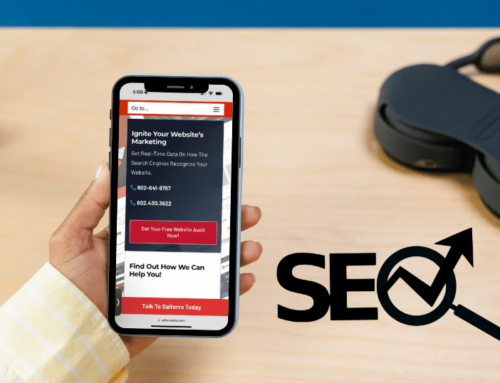 Search engines use meta, title, and header tags to understand webpage content. Optimizing these elements is critical to On-Page SEO, helping improve search rankings, user engagement, and click-through rates (CTR).
Search engines use meta, title, and header tags to understand webpage content. Optimizing these elements is critical to On-Page SEO, helping improve search rankings, user engagement, and click-through rates (CTR).
At SEO University by Salterra, we focus on practical, hands-on SEO training to help businesses and marketers implement these optimization strategies effectively. This guide breaks down the essential techniques for maximizing SEO impact through proper meta, title, and header tag usage.
What Are Meta Tags, Title Tags, and Header Tags?
Understanding how meta tags, title tags, and header tags function is the first step in optimizing them for better search engine rankings and user experience. Implementing these elements correctly can significantly improve visibility and engagement, especially with a structured content strategy that helps rank in Google with website siloing.
Meta Tags
Meta tags provide information about a webpage to search engines and users. The two most important types are:
Meta Title (Title Tag) – The clickable title is shown on search engine results pages (SERPs).
Meta Description – A summary below the title that helps users understand the page’s content.
Title Tags
The title tag is one of the most important ranking factors in On-Page SEO. It should include:
✔ Primary keyword near the beginning
✔ Compelling language to improve CTR
✔ Brand mention, if applicable
Header Tags (H1, H2, H3, etc.)
Header tags structure your content for both users and search engines.
H1 – The main heading (only one per page, includes primary keyword)
H2 – Subheadings that break content into sections
H3-H6 – Additional subsections that improve readability
Best Practices for Optimizing Meta Tags and Title Tags
Crafting the Perfect Title Tag
Title tags should be concise, keyword-rich, and engaging.
✅ Keep it under 60 characters (Google truncates longer titles)
✅ Include the primary keyword (On-Page SEO) naturally
✅ Avoid keyword stuffing
✅ Make it compelling to encourage clicks
Example of an optimized title tag:
🚀 “On-Page SEO Guide: How to Optimize Your Website for Search Engines”
Writing Effective Meta Descriptions
Meta descriptions don’t directly impact rankings but are crucial in CTR and user engagement.
✅ Keep it under 160 characters
✅ Include primary and LSI keywords naturally
✅ Use action-driven language (Learn, Discover, Improve, etc.)
✅ Encourage users to take action (e.g., “Learn more at SEO University by Salterra”)
Example of an optimized meta description:
📢 “Master On-Page SEO with expert-led training. Optimize your title, meta descriptions, and header tags for better rankings. Learn with SEO University by Salterra.”
How to Optimize Header Tags for Better Rankings
Proper Use of H1, H2, and H3 Tags
Search engines use header tags to understand content structure. Proper usage improves readability and SEO.
✔ H1 Tag – Should match the primary keyword and topic (one per page)
✔ H2 Tags – Break content into logical sections using LSI keywords
✔ H3 Tags – Support H2 sections, improving content flow and keyword relevance
Example of a structured header tag setup:
👨💻 H1: The Ultimate Guide to On-Page SEO
➡ H2: How to Optimize Title Tags for SEO
🔹 H3: Best Practices for Writing SEO-Friendly Titles
Using Header Tags for Featured Snippets
Google often pulls content from well-structured H2/H3 sections for featured snippets. Optimizing header tags increases the chances of appearing in position zero.
🔹 Use question-based H2 headers (e.g., “What is On-Page SEO?”)
🔹 Provide clear, concise answers below headers
🔹 Format content with bullet points or numbered lists
Common Mistakes to Avoid with Meta Tags, Title Tags, and Headers
🔻 Overstuffing keywords – Makes content spammy and unreadable
🔻 Using duplicate title tags – Google devalues duplicate metadata
🔻 Skipping meta descriptions – Leads to lower CTR and missed ranking opportunities
🔻 Incorrect H1 usage – Each page should only have ONE H1 tag
At SEO University by Salterra, we teach real-world SEO strategies to avoid these mistakes and maximize search performance.
Elevate Your On-Page SEO with SEO University by Salterra
Optimizing meta, title, and header tags is essential for higher search engine rankings, improved user experience, and increased organic traffic. If you’re looking for a website optimization course that provides hands-on training, SEO University by Salterra offers expert-led sessions to help you master On-Page SEO strategies effectively.
At SEO University by Salterra, we provide live, expert-led SEO training that covers:
✅ Meta tag and title tag optimization strategies
✅ Advanced schema markup techniques
✅ Live Q&A sessions for real-time feedback
🚀 Take control of your website’s SEO! Enroll at SEO University by Salterra and implement these techniques with expert guidance.
About SEO University by Salterra – Your Trusted Source for On-Page SEO Training
SEO University by Salterra is a leading provider of expert-led SEO training, specializing in On-Page SEO, content optimization, website siloing, and advanced schema markup. With locations in Mesa, Arizona, and Colorado Springs, Colorado, SEO University equips digital marketers, business owners, and web developers with the skills needed to improve search visibility, enhance website structure, and dominate organic rankings.
Why Choose SEO University by Salterra?
Founded by SEO expert Terry Samuels, SEO University focuses on hands-on, real-world SEO education that delivers immediate results. Unlike generic online courses, our training sessions are live, interactive, and tailored to real business needs. We teach the most up-to-date search engine optimization techniques, ensuring students master strategies that actually move the needle in search rankings.
Core SEO Training Services
✔ On-Page SEO Mastery – Learn how to optimize title tags, meta descriptions, header tags, and internal linking strategies for better search engine rankings.
✔ Advanced Schema Markup & Structured Data – Implement JSON-LD structured data to enhance Google Rich Snippets and improve crawlability and indexation.
✔ Website Siloing & Content Architecture – Organize website content using silo structures to strengthen topical authority and improve Google’s understanding of your site hierarchy.
✔ Technical SEO & Site Audits – Identify and fix indexing issues, improve Core Web Vitals, and enhance mobile-friendliness for better user experience.
✔ SEO Content Strategy & Keyword Research – Learn how to craft high-quality, keyword-rich content that satisfies search intent and engages users.
✔ Local SEO & Google Business Profile Optimization – Improve local search visibility and optimize Google My Business listings for location-based searches.
Trust, Authority, and Industry Recognition
SEO University by Salterra has earned a reputation for excellence in On-Page SEO training. Our methodologies are built on years of hands-on SEO experience, continuous research, and proven ranking strategies. Terry Samuels, the founder, is a recognized SEO consultant and speaker, frequently presenting at top industry conferences, including SEO Spring Training and Local Client Takeover.




